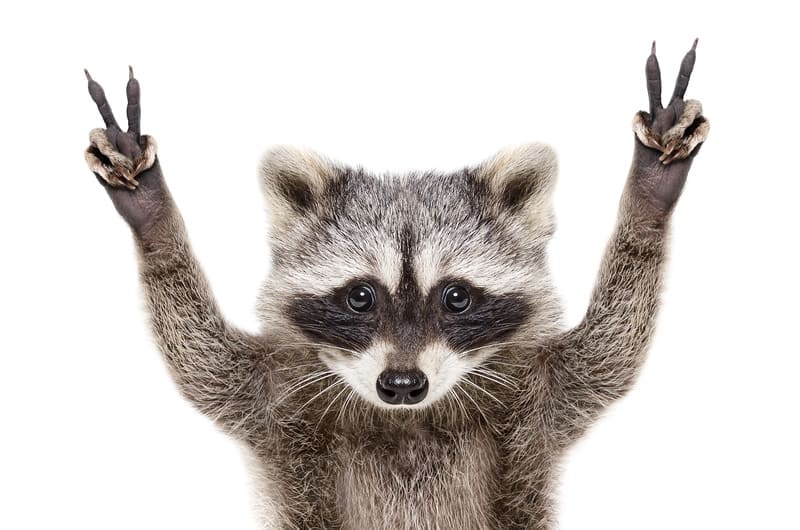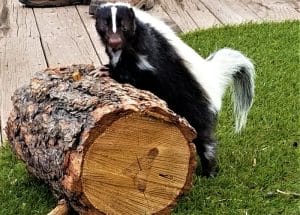Let’s face it- raccoons are pretty cool.
For a wild animal, they have alert and intelligent faces. They’re so nimble that they’re also known as nature’s ninjas. If you’re a fan of the Avengers series, you’ll also know that a raccoon helped save the world. (Go, Rocket 🚀🦝)
However, they make terrible roommates.
Quickly jump to any section in this post 🤔
When to get help with Raccoon Removal Services
Here’s why you’ll want to call Bad Company Wildlife Eviction Specialists for raccoon removal services if one masked critter (or five) decides to move into your Hamilton home.
1. Your Trash is an All-You-Can-Eat Buffet for Raccoons
In the wild, raccoons love to dine on readily accessible food like fish, frogs, snails, and other freshwater prey. When they move in with you, they scavenge for a food source- usually in your garbage bins and even pet food dishes. Anything they don’t want to eat will be strewn all over place for you to clean up. Not fun.
While a lot of animals (including dogs) enjoy checking out trash for tasty leftovers, here are some signs that a raccoon may be the culprit:- Small, hand-shaped tracks around the scene of the crime.
- Lids are off the garbage can or green bin but the container itself hasn’t been toppled over. Trust us- raccoons are smart.
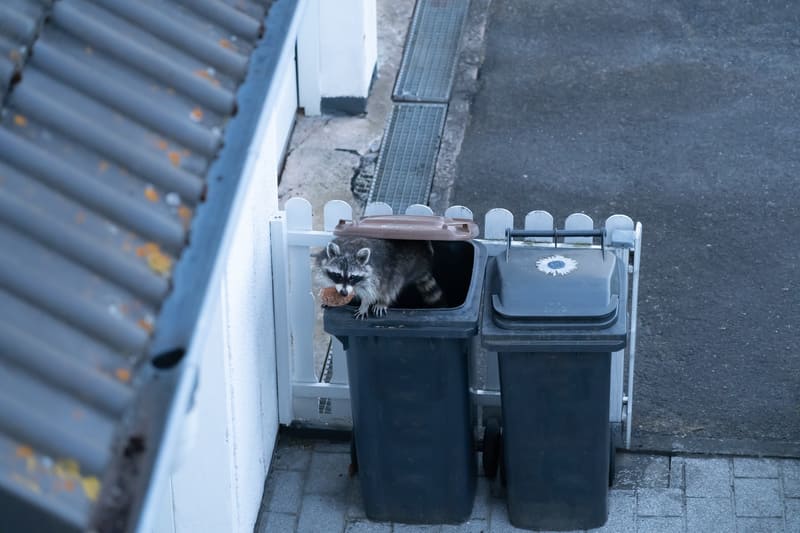
2. They’ll Remodel Your Hamilton Home (Without Asking)
Once raccoons move in, they make themselves right at home by chewing things up for nesting material, destroying insulation and electrical wiring, and ripping apart your ductwork. They even add a little raccoon urine here and there to make the place smell more like home.
The way they see it, they live there too, so why not? What’s property damage to you is home renovation to them.
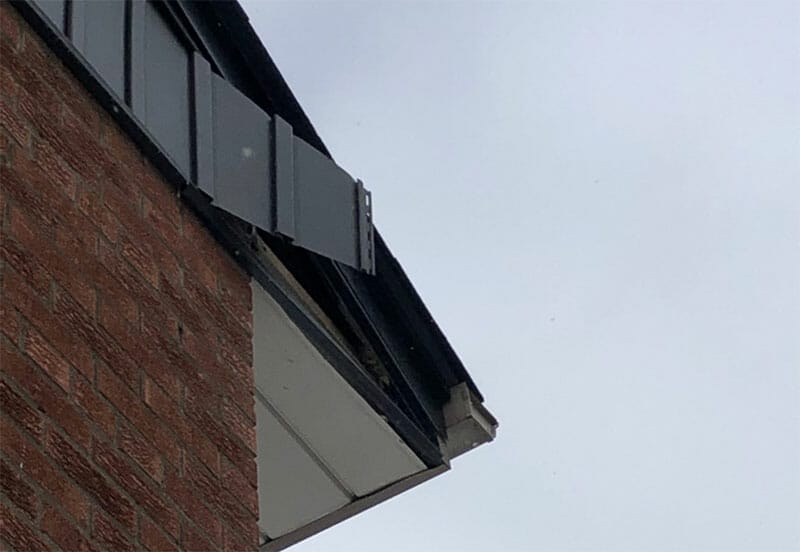
Here are the places in your home where a raccoon is most likely to claim squatters’ rights:
- Ducts: Raccoons often use ductwork to travel throughout the home more efficiently. No 407 pass required!
- The attic: Raccoons are known for looking for a home in all the wrong places. Your attic is warm, safe, and easy to get into, as attic entry points are often overlooked by homeowners.
- Ceilings and walls: Once they get into your home, you may hear a raccoon running above your ceiling tiles or in your walls.
- Crawl spaces: Crawl spaces are a big favourite for mama raccoons seeking a place to bear and raise their babies. You probably never knew that your plumbing pipes are a perfect jungle gym for young raccoons! Speaking of which….
3. Mother Raccoons Have LOTS of Kids
When mother raccoons move in, you can count on her adding three to four babies to the household each spring or early summer. Once these youngsters are independent, she’ll teach them how to set up their own nests in your attic, crawl space, or basement. Next thing you know, you’ve got a whole family of raccoons running around the property in search of food. (Gee, thanks, Mom!)
Some interesting facts about baby raccoons:
- They depend totally on Mom until they are between eight and 12 weeks old. Then they start following her outside and learning how to be, well, raccoons.
- You’ll notice that they follow her in a line, just like baby ducks or geese.
- They don’t develop their trademark face masks until they’re at least 10 weeks old.
- Females grow up faster than males and can have their own babies when they’re a year old.
- Juvenile males tend to stick together in sibling groups when they head out into the world. As adults, they will prefer to live on their own, but in the beginning, they appear to feel safer in numbers.
Speaking of juveniles, check out this cute little guy here!

4. Raccoons Don’t Respect Privacy
Raccoons are extremely dextrous. Have you ever checked out those paws, er, hands? The Aztecs used to call them “mapachitli,” meaning “one who takes everything in its hands.”
Those hands can do a lot, like pry the lids off garbage cans, lift the latch on your pantry door, and open twist door knobs to open doors. Raccoons have mastered the art of home invasion, and you can’t even call the police on them. People have tried.
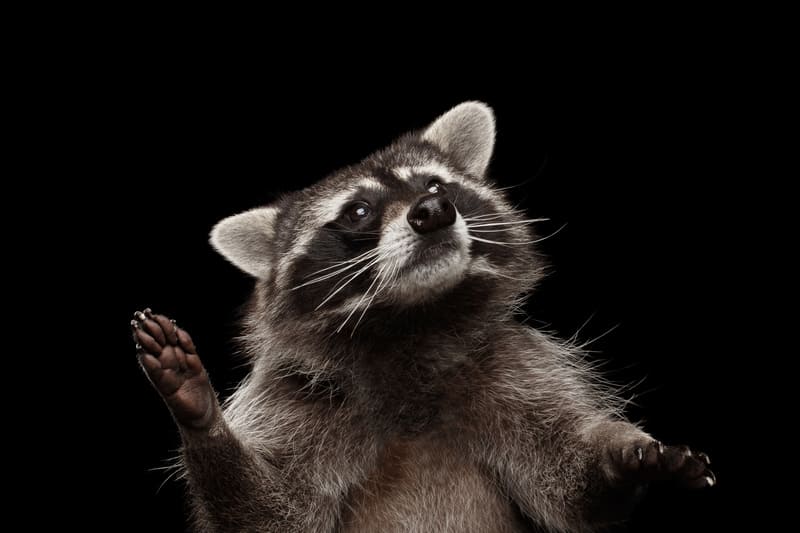
5. Raccoon Removal is not so simple
When you’re trying to get a lazy roommate packing, loud music always works- unless you live with a determined raccoon. You’ll go deaf before they do, so give your ears a break.
On a similar note, don’t use halogen lamps either- they don’t work and can burn your place down 🔥
Trust us- there are more effective methods- like calling an experienced wildlife eviction specialist!
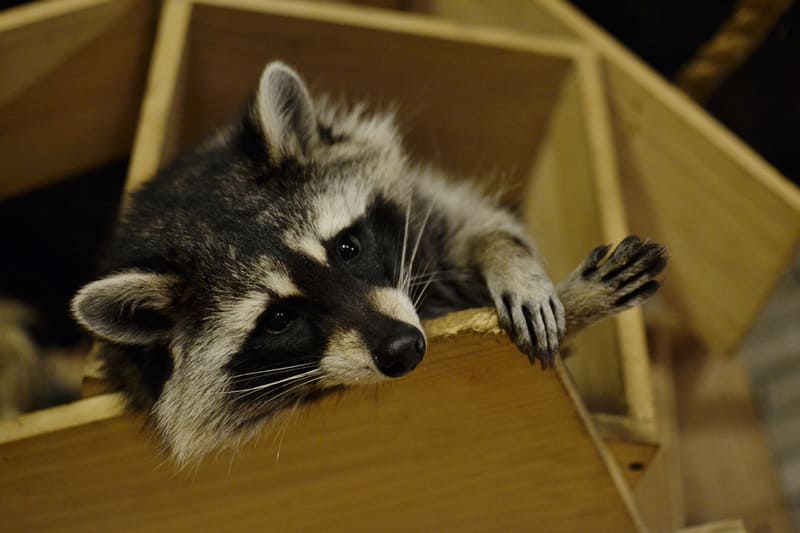
How do raccoons get in?
When raccoons are looking for a place to live, they don’t hop on kijiji. They roam through the neighbourhood until they find a house with at least one entry point, usually on the roof. Being excellent climbers, raccoons can easily go up the side of your house to find what they’re looking for.
Don’t believe us? This masked-bandit almost made it to the top of a Minnesota skyscraper!
Depending on its condition, your roof could contain entry points like the following:
- Weak vent covers
- Soffits made from fragile materials like plastic or aluminum
- Worn roof edges
- The chimney
- Plumbing vents
Raccoons have also been known to get into homes through dog or cat doors, open windows, and exterior doors left ajar. If you try to catch a summer breeze, you might let in something (someone) else!
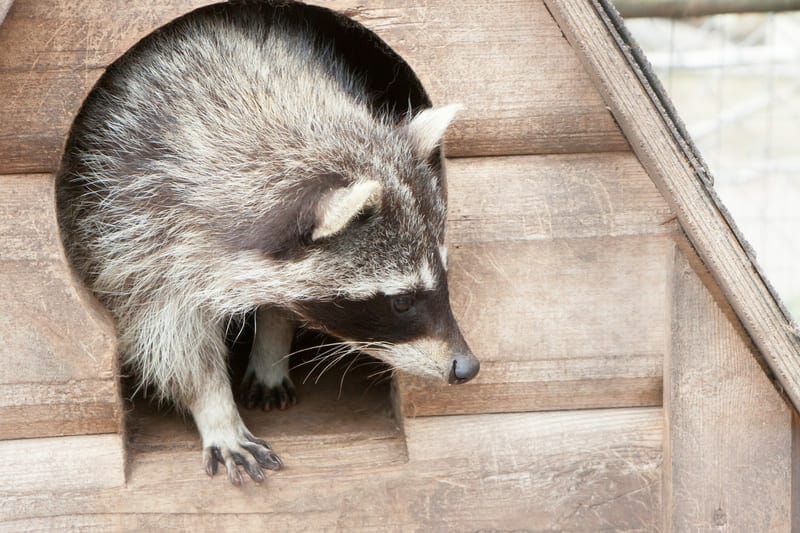
Do’s and Don’ts of Raccoon Removal
No matter what the Internet says, DIY raccoon removal is never a good idea. Here are some of the worst pieces of advice you’re going to come across.
- Manually remove the raccoon. If you see a raccoon in your home, you may be tempted to corner it, subdue it somehow, and take it outside. Never try to remove wildlife yourself. You’ll not only stress out the raccoon, but you also risk getting scratched or bitten.
- Seal up entry points yourself. If you see a raccoon leaving your home to go scavenging, don’t seal up the entry/exit point. While you might keep the animal from getting back in, if it’s a mama with babies inside, you’re making a tragic mistake. Not only might the young ones starve, but the mother can -and probably will- damage your property trying to reach them. You’d be shocked at how much damage determined raccoons can inflict!
- Trapping and relocating it. You may think you’re doing the right thing, but if you use a live trap and release the raccoon far away from your home, you could, once again, be separating a mom from her babies. Trapping is an outdated practice and even if you succeed, you risk releasing a diseased animal into a new area. It’s not worth it.
- Cutting down trees. If you’ve noticed that trees are giving raccoons access to your roof and attic, cutting them down might deter the invaders briefly, but raccoons are clever AND excellent climbers. When trees disappear, they will use a downspout or climb the brickwork instead.
- Poisoning. A million times NO on this one! Not only is it inhumane, but it’s illegal in Ontario and it won’t prevent other raccoons from getting into your home later.
When you want to send the raccoons in your home packing, you need to call a company that specializes in wildlife eviction. That’s us!
Who Can You Call for Humane Raccoon Removal Service in Hamilton?
At Bad Company Wildlife Eviction, we only do one kind of raccoon removal- humane.
Why? Two reasons, actually.
- We love ALL animals 🥰
- The raccoons don’t realize what terrible roommates they are.
When they get into garbage or damage property, they’re trying to survive, not drive you crazy.
Humane raccoon removal means evicting them to another area in a way that keeps moms and babies together and presents minimal stress for the animals. This means:
- We use self-eviction resources like one-way doors, which let them out and prevent them from getting back in.
- All other entry points are sealed or protected with chew-resistant screening before we ‘funnel’ the animals out.
- We evict mother raccoons and their babies together.
Ask about the 10-year guarantee on our work.
How Much Does Raccoon Removal Cost?
It’s difficult to provide a price before your home has been inspected, as every property and eviction requirement is different. When you contact us, we will send an experienced wildlife technician out to:
- Inspect the property for signs of invasion, like nesting materials and even baby raccoons!
- Identify the entry hole(s) as well as potential openings.
- Check for other weak points to see how we can best evict the raccoon(s).
After we explain our raccoon removal process and provide you with an estimate, you can let us know if you’d like to schedule an eviction of your uninvited raccoon guests.
How to Keep Raccoons Away After Eviction
Once your unwanted roommates are off to greener pastures, here are some steps you can take to discourage them from getting back in.
- Make sure that all potential entry points remain sealed.
- If possible, don’t leave pet food or water around when you’re not home.
- Cover and/or drain all water sources.
- Keep trash can and green bin lids secured with bungee cords. Do the same if you store pet food, birdseed, or any kind of grain in an outbuilding.
- Keep wood piles in secured sheds or a building far from your home to discourage raccoons from using them as dens.
- In spring and summer, install motion-activated sprinklers around your vegetable gardens.
You can also contact us if you have any post-eviction questions or concerns.
Contact a Wildlife Removal Company That Cares
As animal lovers, we think that wildlife rocks! Wildlife intrusion in your home- not so cute. So if you’re in serious need of raccoon control, contact us.
At Bad Company Wildlife Eviction, we are wildlife removal specialists with a heart 💗
We understand raccoon behaviour and will use that knowledge to both evict your unwanted guests and apply animal proofing strategies that prevent future raccoon intrusions. To schedule a no-obligation visit, call 1-855-880-9860 or contact us online.

